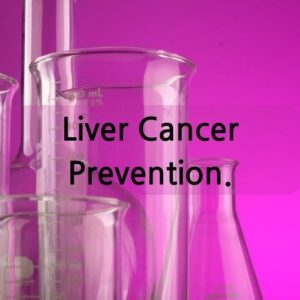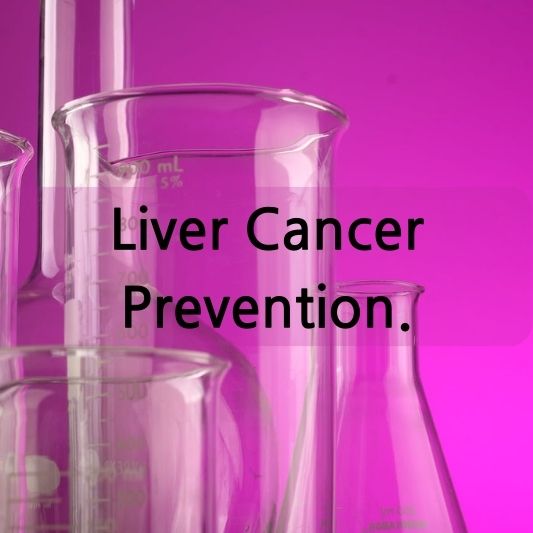Liver cancer, a formidable adversary to global health, has garnered increasing attention due to its rising prevalence and significant impact on individuals and communities worldwide. In this comprehensive guide, we delve into the intricate landscape of liver cancer prevention, empowering you with the knowledge and strategies necessary to safeguard your well-being.

Understanding the Risk Factors
Liver cancer, like many malignancies, often arises from a culmination of genetic, environmental, and lifestyle factors. Understanding these risk elements is paramount in crafting effective prevention strategies. Genetic predisposition, chronic viral hepatitis, excessive alcohol consumption, and obesity with metabolic syndrome stand as prominent risk factors predisposing individuals to liver cancer.
Importance of Prevention
Prevention emerges as the cornerstone of combating liver cancer. By emphasizing early detection and intervention, individuals can mitigate their risk and potentially avert the onset of this formidable disease. Incorporating proactive measures into daily life is instrumental in promoting liver health and overall well-being.
Healthy Lifestyle Practices
Adopting a wholesome lifestyle is pivotal in mitigating the risk of liver cancer. A balanced diet rich in fruits, vegetables, and lean proteins, coupled with regular physical activity, constitutes the bedrock of preventive care. Limiting alcohol consumption, abstaining from smoking, and maintaining a healthy body weight are pivotal in nurturing liver health and bolstering immune function.
Vaccination and Screening Programs
Vaccination against hepatitis B and screening for hepatitis C are integral components of liver cancer prevention. These proactive measures enable early detection and prompt intervention, averting the progression of viral hepatitis to liver cancer. Engaging in routine screenings empowers individuals to take charge of their health and address potential risks proactively.
Medical Management and Follow-Up
Regular medical check-ups and diligent follow-up care are imperative in monitoring liver health and addressing emerging concerns. Healthcare providers play a pivotal role in guiding patients through preventive measures, offering tailored interventions, and facilitating access to comprehensive care.
Community Education and Awareness
Empowering communities through education and awareness initiatives is pivotal in fostering a culture of prevention. Public health campaigns, community outreach programs, and educational resources serve as catalysts in promoting healthy behaviors and instilling a sense of responsibility towards liver health.
Advancements in Treatment and Research
Advancements in treatment modalities and ongoing research endeavors herald promising prospects in the realm of liver cancer prevention. Targeted therapies, immunomodulatory agents, and innovative treatment modalities underscore the evolving landscape of cancer care, offering renewed hope to patients and practitioners alike.
Importance of Early Detection
Early detection remains paramount in mitigating the impact of liver cancer. Recognizing warning signs and symptoms, such as unexplained weight loss, abdominal pain, and jaundice, prompt individuals to seek timely medical attention, facilitating early intervention and improved prognoses.
Support Systems for Patients and Families
Navigating the complexities of liver cancer necessitates robust support systems for patients and families. Support groups, counseling services, and peer networks offer solace, guidance, and emotional support, empowering individuals to confront challenges with resilience and fortitude.
Myths and Misconceptions
Dispelling myths and misconceptions surrounding liver cancer is pivotal in fostering informed decision-making and dispelling stigma. By debunking prevalent misconceptions and providing accurate information, individuals can make empowered choices regarding their health and well-being.
Global Impact and Statistics
The global burden of liver cancer underscores the pressing need for concerted action and collaborative initiatives. With incidence rates on the rise, particularly in regions burdened by viral hepatitis and endemic risk factors, addressing the root causes and fostering equitable access to preventive care are paramount.
The Future of Liver Cancer Prevention
As we chart the course ahead, a collective commitment to innovation, collaboration, and advocacy emerges as our most potent weapon against liver cancer. Through sustained investment in research, education, and policy initiatives, we can forge a future where liver cancer prevention is not merely a possibility but a universal reality.
Conclusion
In conclusion, liver cancer prevention represents a multifaceted endeavor rooted in proactive measures, community engagement, and advancements in care. By embracing a holistic approach to health and wellness, individuals can empower themselves to mitigate risk factors, prioritize early detection, and foster a culture of prevention within their communities.
FAQs About Liver Cancer Prevention
How can I reduce my risk of developing liver cancer?
You can reduce your risk of developing liver cancer by adopting a healthy lifestyle, including maintaining a balanced diet, exercising regularly, limiting alcohol consumption, avoiding smoking, and getting vaccinated against hepatitis B.
Is hepatitis vaccination essential for liver cancer prevention?
Yes, hepatitis B vaccination is essential for liver cancer prevention as hepatitis B infection is a major risk factor for liver cancer. Vaccination helps prevent hepatitis B infection and reduces the risk of liver cancer associated with the virus.
What role does diet play in liver cancer prevention?
A healthy diet plays a crucial role in liver cancer prevention. Consuming a diet rich in fruits, vegetables, whole grains, and lean proteins while limiting processed foods, saturated fats, and added sugars can help maintain liver health and reduce the risk of liver cancer.
Are there specific screening guidelines for liver cancer?
Yes, there are specific screening guidelines for individuals at high risk of developing liver cancer, such as those with chronic hepatitis B or C infection, cirrhosis, or a family history of liver cancer. Screening may include imaging tests like ultrasounds or blood tests for tumor markers.
How can I support a loved one diagnosed with liver cancer?
Supporting a loved one diagnosed with liver cancer involves providing emotional support, accompanying them to medical appointments, assisting with daily tasks, and encouraging them to adhere to their treatment plan. Additionally, connecting them with support groups or counseling services can offer valuable resources and encouragement throughout their journey.
Learn more about liver cancer!
